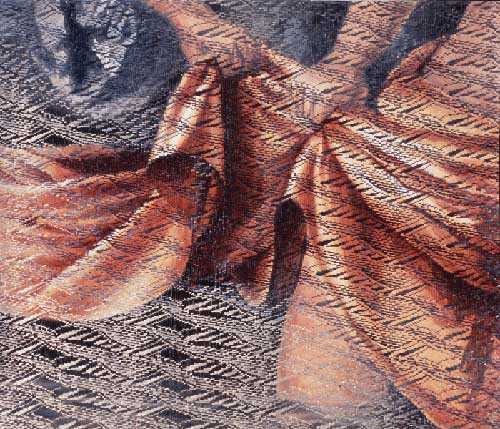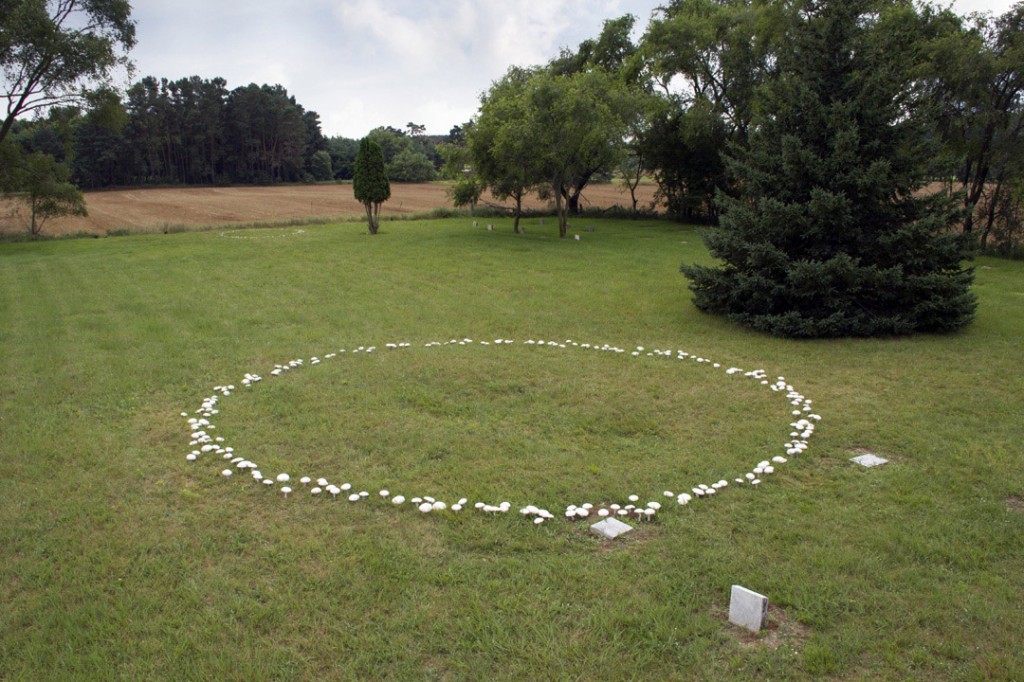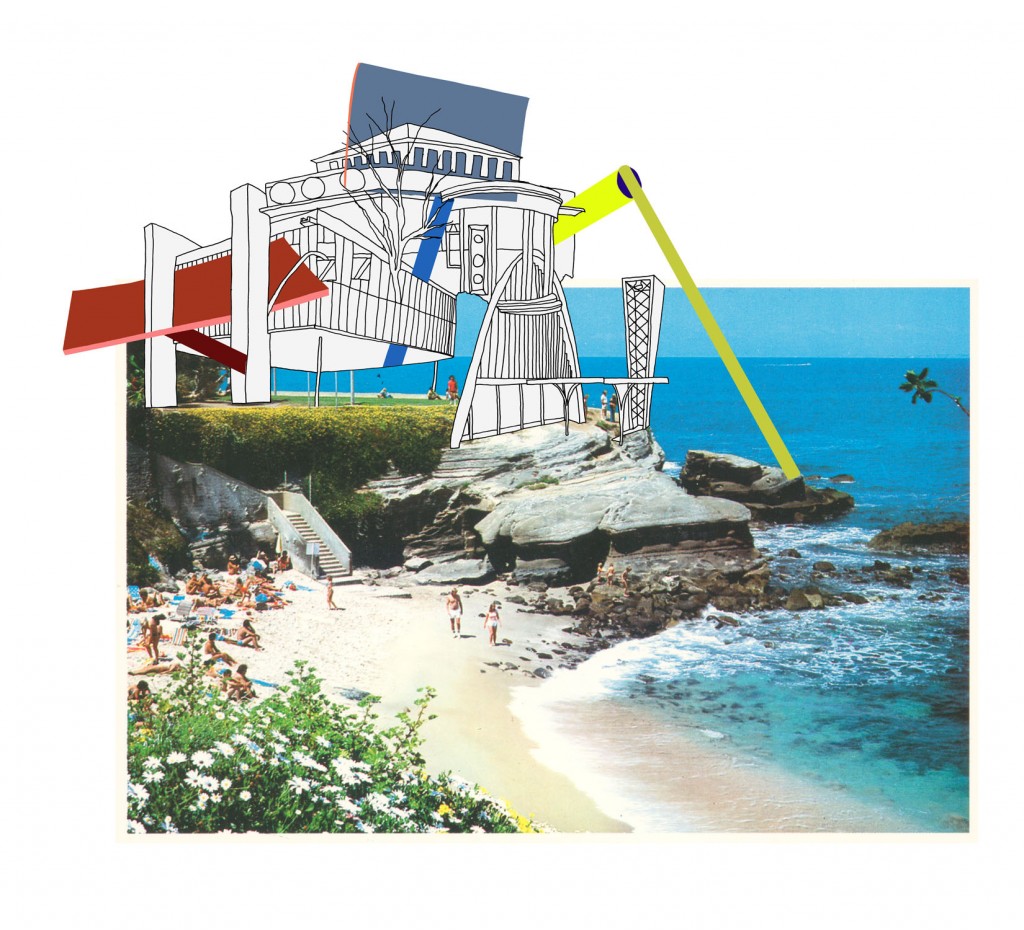Fifteen international artists awarded Research Fellowships
(Featured image: Detail from “Forking Tongues” by Simryn Gill)
The Smithsonian has awarded fellowships to 15 accomplished visual artists from an international pool of candidates to conduct research at Smithsonian museums and research facilities as part of the 2012 Smithsonian’s Artist Research Fellowship Program. Artists were nominated by international art curators, scholars and former fellows, and then selected for short-term residencies at the Smithsonian by a panel of art experts.
Since 2007, when the fellowship program began, more than 50 outstanding emerging and established artists have collaborated with hundreds of Smithsonian experts and volunteers, resulting in innovative new works and exhibitions.
Richard Barnes
U.S.-based photographer (two months)
His research at the Smithsonian will focus on images of Civil War photographers such as Mathew Brady and Alexander Gardner to better understand the nascent photojournalistic movement brought about by the war. Barnes will conduct his research at the National Portrait Gallery, Smithsonian American Art Museum and the Smithsonian Archives.
Lia Cook
U.S.-based textile artist (six weeks)
Woven Faces: Touch and Technology
Cook is interested in the sense of touch and how it is manifested and interpreted in woven images, particularly portraits. Her previous work with a neuroscientist explored how texture is perceived in portraiture. She will work at the National Portrait Gallery examining how artists use tactile qualities in images to represent varied emotions. Cook will also examine material culture at the American History Museum, imaging technologies at the Natural History Museum and research on facial recognition among primates at the National Zoo.

Point of Touch: Intention/Contention 1996, Lia Cook. (Collection of the Fine Arts Museum of San Francisco)
Lillian Cox-Richard
U.S.-based sculptor (one month)
The Stand: Possessing Powers
Cox-Richard’s sculptures explore myths and allegories used to promote American national and artistic identity. At the Smithsonian, she will study examples of American Neoclassical sculpture at the Luce Foundation Center and the collection of Hiram Powers papers at the Archives of American Art.
Christine Dixie
South African printmaker (two months)
The Heroic Explorer and Angelic Girl
Dixie will focus her research on two 19th-century Victorian gender stereotypes: the angelic girl child and the heroic explorer. She will examine rare books about the heroes of African adventure, silhouettes at the National Portrait Gallery and Victorian interiors and textiles at the Museum of American History.
Simryn Gill
Malaysian/Australian mixed-media artist (one month)
Research in the entomological collection at the Natural History Museum
Gill plans to immerse herself in the Hymenoptera collection at the National Museum of Natural History to experience firsthand “visualization of knowledge” with a particular interest in the societal organization of ants, bees, termites and wasps.
Camille Henrot
French sculptor (two months)
Henrot’s research will include the study of artifacts, documents, rituals and narratives that attempt to synthesize the massive accumulation of knowledge by the individuals and communities who produced the objects.

The Great Poor Farm Experiment, 2011, Lily Cox-Richard. Hundreds of mushrooms form rings around unmarked graves in the old Waupaca County Poor Farm Cemetery. Materials: Cast aqua resin
Michael Joo
U.S.-based sculptor (two months)
Joo explores the dynamic tension between an artwork’s conceptual identity and its physical materiality, and then reinterprets the object by employing three-dimensional imaging and printing technologies. He examines digitization and related processes to understand how such representations shape our perceptions and experiences of objects.
Irene Kopelman
Argentinian mixed-media artist based in The Netherlands (one month)
Kopelman is interested in doing fieldwork at STRI to learn the techniques and rationale behind gathering of data and information, how data are recorded in the field and then cataloged. She will concentrate her research in finding formal patterns and evolutionary changes in the morphology of plants, and insects.
Tristin Lowe
U.S.-based sculptor (one month)
Lowe’s sculptures are informed by the evolution of our understanding of the universe creating imaginary and absurd objects. Lowe will study the specimens in the national Meteorite Collection at the National Air and Space Museum, focusing on the building blocks of life, water and amino acids in particular, through their impacts with the Earth.
Steven Montgomery
U.S.-based ceramicist (two months)
A Language of Power: A Study of the Aesthetics of Military Aircraft
Inspired by industrial imagery, Montgomery’s sculptures are realistic, historically informed and even political. At the National Air and Space Museum, Montgomery will study mechanical components, elements and graphic markings used on military and commercial aircraft.
Kim Schoenstadt
U.S.-based painter (six weeks)
Sum of Our Parts: Smithsonian
Shoenstadt’s drawings and large-scale installations are best known for combining dissonant built locations and creating an improbable architecture and sense of place. Schoenstadt will study objects and historical documents at the Hirshhorn, the Air and Space Museum, American History Museum and the Archives of American Art, as well as the architecture of the Smithsonian.
Chico Togni
Brazilian sculptor (two months)
Technical and Constructive Solutions in Invention and Aerospace Machinery
Togni’s work is informed by the mechanics of industrial machines. He creates complex sculptures and installations of machinery that operate differently from their original intent, challenging the viewer’s experience of reality, fiction, and the absurd.
Penelope Umbrico
U.S.-based photographer (one month)
Holdings: An Archive of Boxes of Boxes of Archives
Umbrico will research the history of technology, specifically ideologies of efficiency, productivity and organizational structures in relation to archival practices. She will explore the idea of the “box” as an object for containment and concealment in relation to the reductive cleanness of modernism and the seduction of empty space.
Herve Ngamago Youmbi
Central African Republic/Cameroonian installation artist (two months)
Youmbi’s current work is a commentary on the culture of art in African spaces, portraiture and mass-produced advertizing. His art uses hybridized forms of portraiture and representation to criticize current social practices. He will explore comparative forms of post-colonial portraiture in North America and Africa through studies of art work in the Portrait Gallery and National Museum of African Art.
Mark Zirpel
U.S.-based glass artist (two months)
Zirpel’s sculptures reflect his curiosity about how the world works. He studies mechanical models to understand how physical forces control matter. At the Smithsonian, he will focus on the instruments of discovery and exploration by studying collections of scientific apparati related to observation and measurement, time keeping, terrestrial and celestial navigation, electricity and magnetism.
Posted: 23 July 2012
- Categories:







